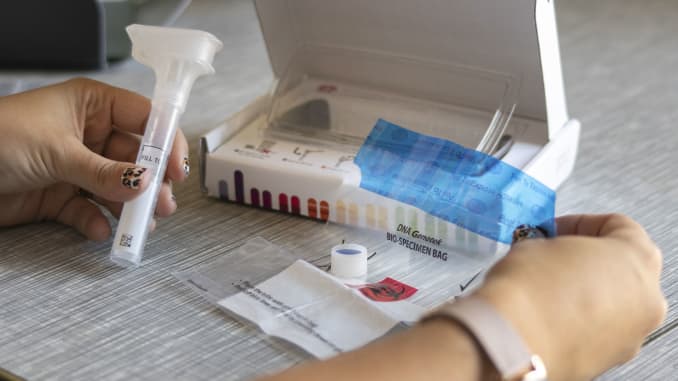
On this past Wednesday, DNA testing giant, Ancestry, announced a 6% staff cut on its 1700 employees. This news should not come as a surprise as one of Ancestry's biggest competitors, 23andMe, also laid off about 14% of its workforce just a few weeks prior. In addition, another stakeholder in the genealogy market, Veritas Genetics, is also shutting down their U.S. operations. 2020 seems to mark the end of the "DNA testing fad", according to Business Insider.
The rise of in-home DNA testing came in the early 2010s. The popularity for consumerized DNA testing quickly swept across America due to its ease of use and its ability to provide important personal knowledge that was previously unknown to the consumer. Nowadays, DNA testing has become so common that you could even find DNA testing kits sold at your local pharmacy or do DNA testing for your cat to scan for underlying health concerns. But how did these services earn a place in the consumer market in the first place? Or more importantly, how did DNA testing become a common in-home practice?
Many of these companies began with one very important service that accounted for their later success, ancestry tracing. According to a Time article-- How Genealogy Became Almost as Popular as Porn, the author provided another angle to look at the fascination over DNA testing. As a country built by immigrants, America signifies the beginning of a different life. But at the same time, immigration also leaves an empty gap between many Americans and their roots. Years of racial conflicts in the U.S. has caused citizens to grapple with their own identities.
Nowadays, we learn that there are actually ways to fill these gaps, to know where we came from, and most important of all— who we are. What's even better is that we can ask these questions at home and have them answered in a very scientific way through DNA testing! Genealogy companies successfully filled a niche in the consumer market by using genetics. In the end, what these companies sell is not DNA sequencing technology or anything fancy. They are simply selling consumers knowledge on themselves using the consumer's DNA.
This business model led to the success of these DNA testing companies. But it seems like it is also a double edged sword as it turns out-- these companies are selling this information not only back to the customers, but also everywhere. When you buy a package from companies like 23andMe, they ask for consent to share your personal information. At times, consumers might not be as alert as to what kind of information they are sharing until they find out that these genealogy companies partner with pharmaceutical companies like GlaxoSmithKline. 23andMe even invests in their own team to manage the DNA database that they collect and use these data to develop new drugs.
Almost a decade into the DNA testing craze, people have come to realize they are getting the short end of the stick. Not only they are paying to get their DNA tested, they are even paying to get their DNA information shared. As DNA technology becomes more common and genetic literacy increases, more and more people understand what it means to have your DNA handed off to someone else. Through the operation of these genealogy companies, the debate on genetic privacy also reached to many more people across America.
According to the CEO of Ancestry, Margo Georgiadis, the slowdown in consumer demand in the genealogy market can be blamed on not providing enough value or innovative technology to the customers. When in fact, there is no more wool they can pull over consumer's eyes anymore and DNA testing companies can no longer quietly get away with making profits off personal genetic information. If these companies cannot show a stance in the genetic privacy debate, it is not long until we see another article on staff cut in another DNA testing company.
How Genealogy Became Almost as Popular as Porn
https://time.com/133811/how-genealogy-became-almost-as-popular-as-porn/
Genealogy giant Ancestry just joined 23andMe in cutting workers as the DNA testing fad ends
https://www.businessinsider.com/genealogy-giant-ancestry-lays-off-employees-2020-2
Consumer DNA testing is a bust: Here’s how companies like Ancestry and 23andMe can survive
https://www.cnbc.com/2020/02/07/how-dna-testing-companies-like-ancestry-and-23andme-can-survive.html
Monica Cheung- Feb 9th, 2020

No comments:
Post a Comment